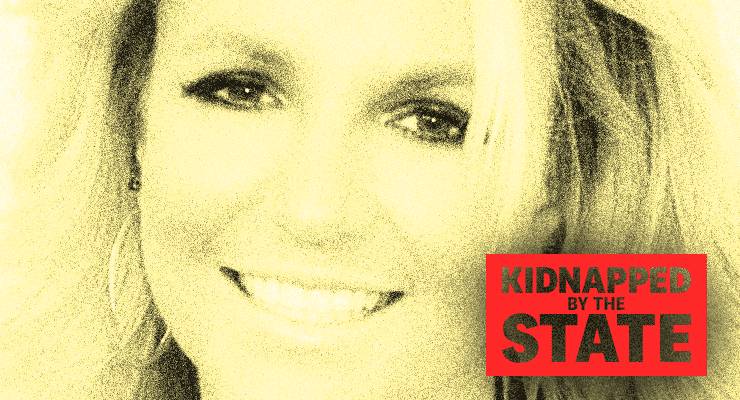
This article is part four in a series. For the full series, go here.
Some readers may find aspects of this article distressing.
When Britney Spears made explosive criticisms about her conservatorship to a Los Angeles court earlier this year, it made international headlines. Spears’ father, Jamie, had been her financial and personal conservator since 2008 when he enacted guardianship after she had a public episode of poor mental health.
Britney alleged she wasn’t allowed to remove her contraceptive to have more children, couldn’t access her money without permission, and was forced to take medications and continue performing against her will.
As this Crikey investigation reveals, similar life-altering and expensive restrictions are enforced in Australia by the state, with tens of thousands of people having their care and life decisions managed by the public guardian, and their finances and assets managed by the public trustee. Yet their stories rarely get air time.
State offices of the public guardian and public trustee are powerful. Across the country, public trustees oversee over 47,000 people’s finances, managing $14.7 billion in assets and raking in more than $1.1 billion a year in revenue while nearly 14,000 Australians are under guardianship orders. As statutory bodies, the offices work closely with the government.
Guardianship and public trustee orders are important parts of protecting the rights and well-being of those at risk of financial and physical abuse and neglect. Implementing them isn’t easy: inheritances are often at stake and family members have a vested interest in protecting the family’s assets, sometimes at the expense of those who need protection.
But as we have found, putting care and cash into the hands of state representatives isn’t always the best solution. Not only do many of these offices have a profit-centred motive, but Crikey has heard numerous stories about the care provided being substandard.
Reporting on those under a guardianship order is exceedingly difficult because it is illegal to publicly identify them. Once under guardianship, details about a person’s medical care, assets and invoices charged to their accounts are shared only with the person under the guardianship order, their legal representatives and the court. Many under guardianship orders don’t possess the legal capacity to bring matters before judges or magistrates.
This makes corroborating stories a challenge. Sharing tribunal documents about the reasons behind a guardianship order cannot be done unless the tribunal grants an exemption. Sharing tribunal documents can lead to fines of $1100 or 12 months’ imprisonment in Queensland.
Many tribunal hearings take place without the family present, and many under guardianship orders tell Crikey they weren’t aware of the ramifications of the hearing.
Unless they are part of the court proceedings, families don’t have access to the evidence behind the guardianship order, which can include allegations of elder abuse. This is a huge point of frustration for the dozen families Crikey has spoken to for this series.
They also rarely have access to itemised invoices for fees being charged to their family’s bank accounts, or medical decisions for end-of-life care.
Those under guardianship orders were concerned that speaking to Crikey could delay or complicate their legal proceedings to revoke guardianship. Many felt there was a penalty for challenging the orders — court cases dragged on and more expensive legal fees were charged.
Several lawyers were reluctant to go on the record. One was concerned their career had already been impacted by speaking to the media about their concerns. Others were worried that criticising the offices could affect the outcome of their cases, or they might be held in contempt of court for identifying those under guardianship orders to the media.
Crikey understands one media company is fighting these strict laws in court to protect victims, lawyers and medical representatives featured in its series.
Families have complained about the lack of transparency and the complaints process, and ask how tribunals make decision, how fees are calculated, and whether they’d be better off without state intervention.
But because of the gag laws, their questions often go unanswered.
To read more pieces in this series, go here.
For legal reasons, please don’t identify yourself or others under guardianship or financial administration in the comments.








These laws are obvious’y a hangover from the Bedlam laws and should have been repealed at least 50 years ago.
For State governments to actually be using them is a disgrace and further proof that every action of governments should not only be scrutinised but done so regularly , because bureaucrats will always encroach on our civil liberties with no regard to fairness or ethics
No authority of any kind should be able to conceal it’s actions and the results of those actions. And obfuscation should be personally punishable by law: Whose lives are they anyway ?
Thank you, Amber and Crikey for these articles. I am very concerned for a friend whom I thought was in need of help. I have asked how she is but am told “confidentiality”. I am glad I am no longer going to the Public Trustee to make my will.
Were both these State government-supported business institutions in each State closed down, nobody would be any the worse off. I believe they see their role as separating the financial estates, (including real-estate owned) from the elderly and the vulnerable persons placed into the hands of the above two non-transparent & grossly offensive business institutions.
Who wins, only the State government business institutions in each State of Australia.
Who loses, only the elderly and vulnerable persons in each State of Australia.
Abuse of an elderly & or vulnerable person’s human rights still rages on as though these two State institutions make up their
own rules and bugger anyone who thinks differently.
Ms Amber Schulz and Crikey.com itself must be thanked for their excellent coverage of both these “stacked deck of cards” sinister State government business institutions.